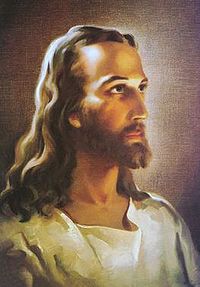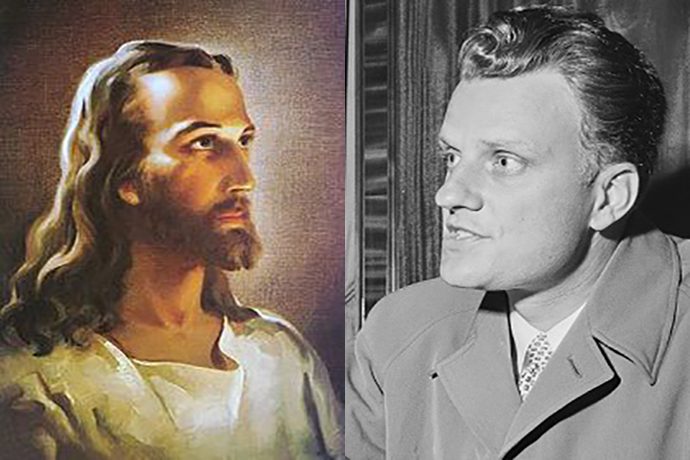OK, I completely understand why the Graham family and the Billy Graham Evangelistic Association would cotton to the mainstream media tag, “America’s Pastor.” No doubt they’re thrilled that his body will lie in state at the Capitol next week, the first decedent to be so honored since Rosa Parks.
To give Graham his due, he was always clear that anything funny about the money would taint his operation, beginning with the so-called Modesto Manifesto in 1948. He also refused to be a “Jim Crow preacher,” although it’s not altogether clear whether he was merely taking the temperature of changing times in the 1950s and 1960s or whether this was a deeply principled stand.
And while it is hard to imagine his creepy son Franklin doing anything like this, Billy Graham didn’t much care whether the people “receiving Christ” at his events ended up in moderate mainline congregations or fire-breathing fundamentalist ones. His advance team would work with local ministers across the spectrum. And he considered it important for the newly converted to be properly churched: he did not hoard them (and their dollars) for himself in the manner of an Oral Roberts or a Jimmy Swaggart or a Joel Osteen. Toward the end of his very long life—and insofar as he could still actually speak for himself and not be used as a sock puppet by the nefarious Franklin—Billy Graham apparently mellowed on two crucial fronts: whether nonbelievers are consigned to hell, and whether God could possibly love queer people. All to his credit, I say.
But back to the “America’s Pastor” thing: it’s just wrong in so many ways.
Let’s try this simple test. Would a good pastor suck up to presidents and other powerful people, granting them general absolution despite their known crimes (and yes, here I am thinking primarily of Napalmer-in-Chief Lyndon Johnson and of Tricky Dick Nixon, the president with whom Graham had the closest relationship)?
For that matter, would a good pastor reinforce a parishioner’s Jew-hatred, as Graham clearly did vis-a-vis Nixon (although he later claimed that he forgot saying these appalling things)?
So ixnay on “America’s Pastor.” I don’t even want to give Graham credit for being “America’s Preacher.” Calling him that would be an insult to earlier figures who really knew how to use a pulpit: Charles Grandison Finney, Henry Ward Beecher, etc., as well as to Graham-contemporary preachers of real spiritual genius like Gardner C. Taylor.

I would place Graham differently. I would describe him as white America’s surrogate savior. Although not personally vain about his looks, the young Billy Graham surely knew that he bore a striking resemblance to pictorial representations of the blue-eyed Aryan Jesus: Warner Sallman’s hugely popular renderings, among others.
His “blond Jesus” looks helped, but his confidence helped even more at a time when white American Christians were a little bit anxious about the atomic threat, about the communist threat, and even about their unprecedented postwar prosperity under the corporate state.
Graham’s humble farm boy background, his evident personal decency, and his absolute assurance that God can fix anything gave White America exactly the bromides it needed just when they were most needed. And, of course, the more successful Graham became, the more it seemed that God’s special anointing of white American folkways was still in effect. Graham’s frequent hobnobbing with presidents reassured all those saved white people and wanna-be-saved white people that our great and godly Republic was still on the righteous path.
To function as a surrogate savior, Billy Graham didn’t have to suffer or sacrifice in the Jesus manner. He merely had to remind us that it’s always still possible to be washed whiter than snow.


